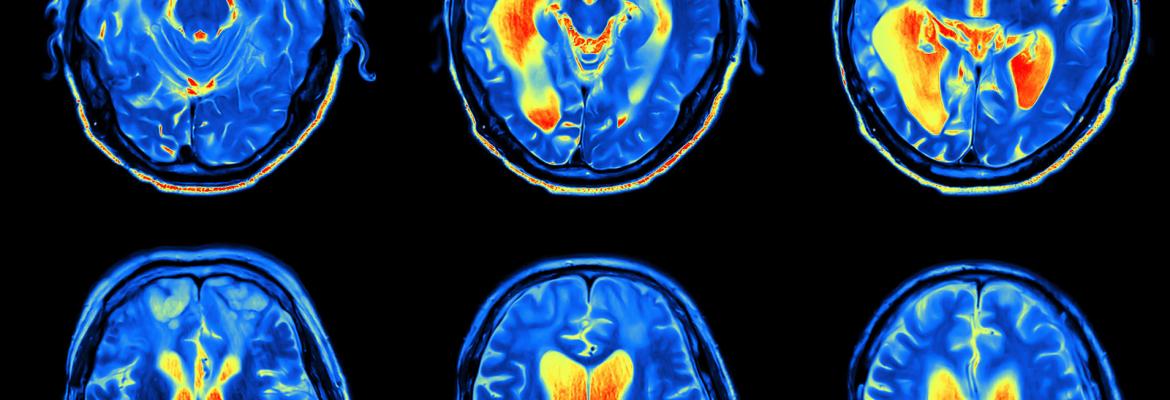Nuclear Medicine in the East of England
Nuclear Medicine (NM) is responsible for the diagnostic and therapeutic uses of radioisotopes.
The work of most NM departments is changing whilst originally concerned with familiar imaging procedures such as bone, lung and renal scintigraphy more recent advances mean that we deal with new hybrid imaging such as SPECT-CT, PET-CT and PET-MR. There is an expanding role for radionuclide therapy which is commonly used for conditions such as benign and malignant thyroid disease but now extended to joint disease, cancer metastases and neuroendocrine tumours.
Attractions of the Specialty
Perhaps the single most attractive feature of a career as a nuclear medicine physician is the holistic nature of the speciality as there are interactions with all clinical specialties. While many areas of medicine lead down a relatively narrow, system-oriented path, the nuclear medicine physician deals with all organ systems and all types of disease, which results in a varied and interesting job. As a member of the diagnostic imaging team, the nuclear medicine physician plays a central role in the diagnosis and management of almost all patients attending the hospital and a significant proportion of those in primary care. Like radiology, nuclear medicine makes use of exciting and rapidly changing technology. Nuclear medicine provides excellent opportunities for research, both related to imaging and to the basic sciences.
Training Programme
There are two routes to specialization in nuclear medicine. The first is a six-year training scheme which includes first 3 years in clinical radiology resulting in the FRCR and second half in nuclear medicine, undertaken after a minimum of two years of core medical/ surgical paediatric training and MRCO/ MRCS/ MRCPaeds. This training scheme will result in a dual CCT in nuclear medicine and clinical radiology. The second route involved 1 year of full-time nuclear medicine training after completing 5 years radiology including radionuclide radiology. This programme is only open to those who have MRCP/ MRCS/ MRCPaeds and a completion of 2 years core medical/ surgical paediatric training. For those moving from radiology, this sixth year extends the radionuclide radiology experience to include additional non-FDG PET-CT paediatric nuclear medicine, complex nuclear cardiology and radionuclide therapy. For both routes, the trainee will need to complete the diploma in nuclear medicine run by Brighton and Sussex medical School (online).
Nuclear medicine training in the East of England is based entirely at Addenbrooke's Hospital. The department has five consultants, covering all aspects of adult, paediatric nuclear medicine and PET. There are close links with radiology, with multiple daily clinical conferences at which cases are discussed. An active research programme exists in the department and the Specialist Registrar is expected to participate in these projects. An academic career track, possibly leading to an MD or PhD, would be supported if desired.
At present there are 3 training posts in East of England, two would recruit from either ST3 after CMT or after 5 years radiology with radionuclide radiology. The other training post is an NIHR funded Academic Clinical Fellow post with 25% protected research time.
Presently, the duration of higher medical training in Nuclear Medicine is six years. After FRCR trainees will be expected to enrol for a post graduate diploma in nuclear medicine offered by Brighton and Sussex medical school. Full training curriculum is available on the JRCPTB website. Those entering from clinical radiology may be exempt from up to five years of the training programme but must have completed 2 years of CM/S/Paeds T during their core training with the relevant diploma. Such individuals are likely to have an individual training programme the exact content of which will be determined by the relevant training and experience of the individual at the time of entry. The curriculum for training as a Radiologist with a special interest in Radionuclide Radiology is provided by the Royal College of Radiologists (RCR) and approval for a CCT in Radiology.
- Completion of a core medical /surgical/ paediatric training programme or equivalent.
- Documented evidence of achievement of level 1 and level 2 competencies in general internal medicine (acute) and generic curricula or equivalent for CST and CpaedT.
- MRCP/ MRCS/ MCRPaed. Though applications can be made before the full membership is attained, the post will not be taken up unless the full diploma is attained.
| Further advice | Position | Location |
| Dr HK Cheow | Training program director | Addenbrookes Hospital |
| Dr James Edwards | Head of School of Medicine & Associate Postgraduate Dean | HEEoE |
No information available at present.
